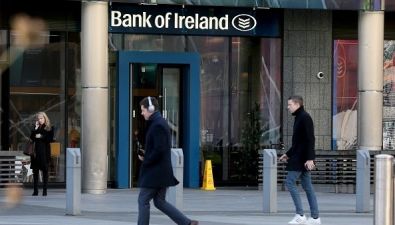Bank of Ireland has become the first Irish lender to return to full private ownership since the aftermath of the 2008-09 global financial crisis after the Government said it had sold the last of its shares.
The State pumped €64 billion or almost 40 per cent of annual economic output into the banks just over a decade ago after a property crash had left the banking sector requiring the biggest rescue in the euro zone.
Bank of Ireland, the country's largest bank by assets, was the only lender to avoid majority State ownership and the only one on which the Government has made a profit on its investment so far.
The Government said on Friday it had recovered almost €6.7 billion in cash from its €4.7 billion investment in and support for the bank between 2009 and 2011.
It earned approximately €841 million since it began the gradual sale of the state's residual 13.9 per cent shareholding in Bank of Ireland in August 2021.
"Taxpayer funds which were used to rescue the Irish banks, should be recovered and used for more productive purposes," Minister for Finance Paschal Donohoe said in a statement.

"The gradual disposal of the state's investment in Bank of Ireland into a rising market has been successful in delivering on this objective for our citizens."
Donohoe told an Oireachtas committee on Wednesday that his department would resume a similar gradual sale of shares in AIB later this month while also monitoring the market for opportunities to sell a larger chunk of stock in one go.
Last year Donohoe said there was “every prospect” the Government would recoup the money it put into AIB but that it would take longer than expected.
More than half of the €64 billion banking rescue that formed part of the EU/IMF bailout will never be returned after being swallowed up by two failed lenders, Anglo Irish Bank and Irish Nationwide Building Society, which were wound down.







